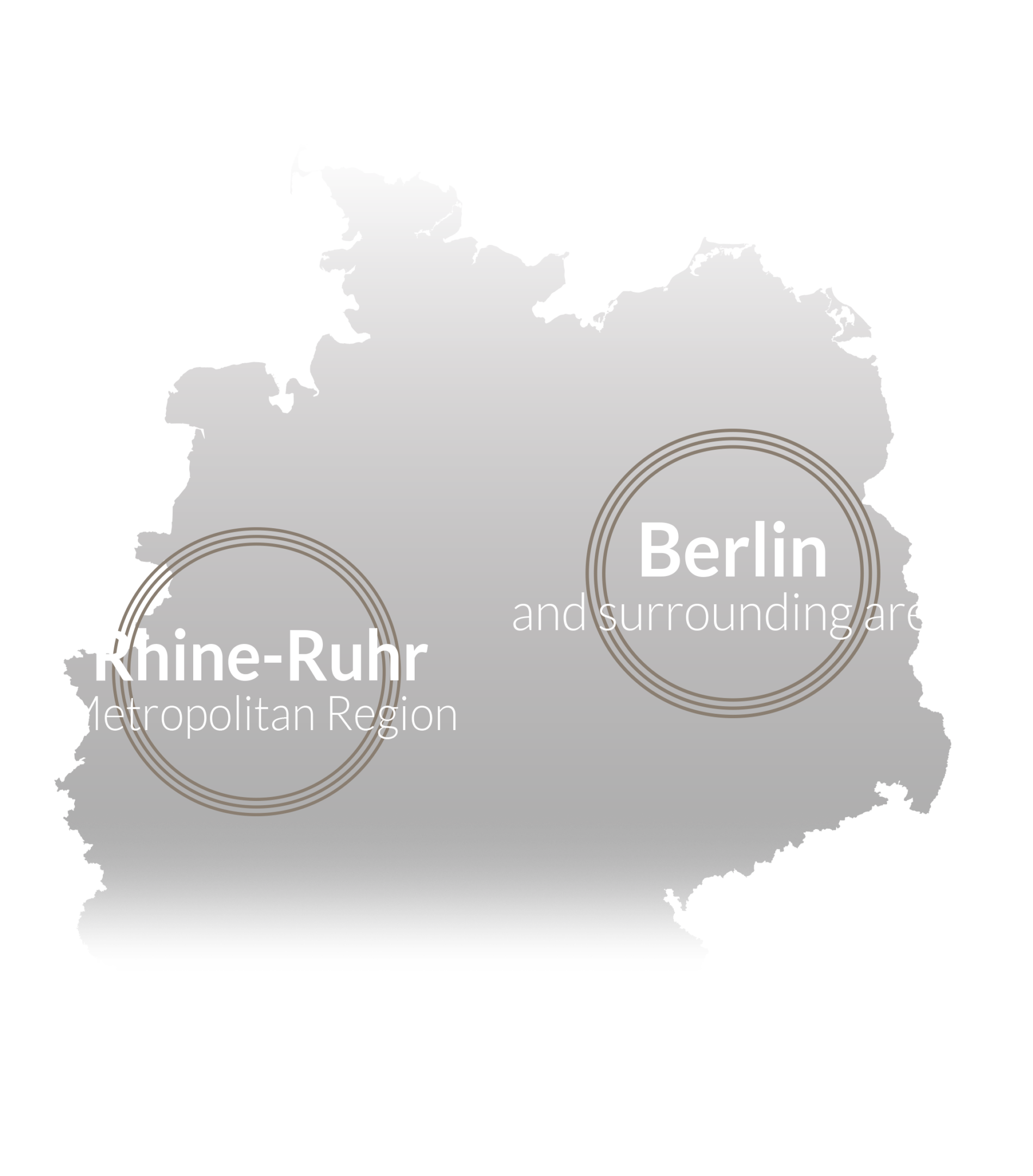Welcome to MÄHREN AG
MÄHREN AG is an owner-managed group of companies headquartered in Berlin. Our core business: We buy and develop residential real estate portfolios as portfolio holders. This includes residential complexes, prefabricated buildings and housing estates as well as larger apartment buildings and residential portfolios. We also invest in the acquisition and development of industrial properties and in the privatization of residential portfolios.
Since its foundation, the company has built up decades of in-depth expertise and has been one of the leading residential real estate companies on the German real estate market for many years.

„As a company, MÄHREN AG is constantly striving to create added value.
We do this by acquiring properties in order to develop them and make them fit for the future.“
Jakob Mähren, CEO

„As a company, MÄHREN AG is constantly striving to create added value.
We do this by acquiring properties in order to develop them and make them fit for the future.“
Jakob Mähren, CEO
We acquire residential properties nationwide
MÄHREN AG’s portfolio currently comprises more than 1,000 units with attractive residential and commercial space. In addition to our home market of Berlin, our real estate portfolio mainly covers the Rhine-Ruhr metropolitan region and numerous cities in Germany with a population of 50,000 or more.
We will continue to expand our real estate portfolio in 2024.
Please feel free to contact us.
We look forward to hearing from you.

We acquire residential properties nationwide
MÄHREN AG’s portfolio currently comprises more than 1,000 units with attractive residential and commercial space. In addition to our home market of Berlin, our real estate portfolio mainly covers the Rhine-Ruhr metropolitan region and numerous cities in Germany with a population of 50,000 or more.
We will continue to expand our real estate portfolio in 2024.
Please feel free to contact us.
We look forward to hearing from you.

Become a part of our team
People are at the center of everything we do. They make the difference. Our team is made up of experts from a wide variety of fields. We live an open and lively corporate culture based on collegiality and transparency.
We are also expanding our business activities in 2024 and expanding #TeamMÄHREN.
Take a look at our job advertisements. We look forward to receiving your application.
Would you like to sell your property?
We prefer to buy larger residential portfolios, such as apartment complexes, prefabricated buildings and housing estates as well as larger apartment buildings - individually and as a portfolio.
- We pay commission to brokers & tipsters immediately when the contract becomes legally binding
- We find uncomplicated solutions for missing documents
- We work with estate agents, property managers, tipsters, owners and private sellers
We have been operating as a residential real estate company based in Berlin since 2002. You’ve come to the right place if you want to sell or broker a property. Thanks to our specialized business areas, we can provide you with optimal support for every project – competently, reliably and unbureaucratically. Our own funds allow us to purchase properties quickly and independently of banks.
We have short decision-making processes, act unbureaucratically and are known for our uncomplicated handling.
Since our foundation, we have steadily expanded our own portfolio of residential and commercial properties. Our portfolio currently includes more than 1,000 units. Our dynamic growth will continue in 2024. We not only invest in our home market of Berlin and the Rhine-Ruhr region, but also in residential properties in cities across Germany with a population of 50,000 or more. We are also happy to examine properties in problem neighborhoods or vacant and refurbished properties.
2.5+
Billion Euro
transaction volume since foundation
1,000+
Real estate transactions
1,000+
Residential and commercial units
200,000+
m2 Light industrial and logistics space
60+
Employees
22
Years of history
We are…
TRUSTWORTHY
We are your reliable and trustworthy business partner.
FINANCIALLY STRONG
We are financially strong and can carry out real estate purchases quickly and independently of banks.
UNCOMPLICATED
We are uncomplicated and also acquire real estate unbureaucratically.
2.5+
Billion Transaction volume since foundation
60+
Employees
200,000+
m2 Light industrial and logistics space
1,000+
Real estate transactions
1,000+
Residential and commercial units
22
years of history

